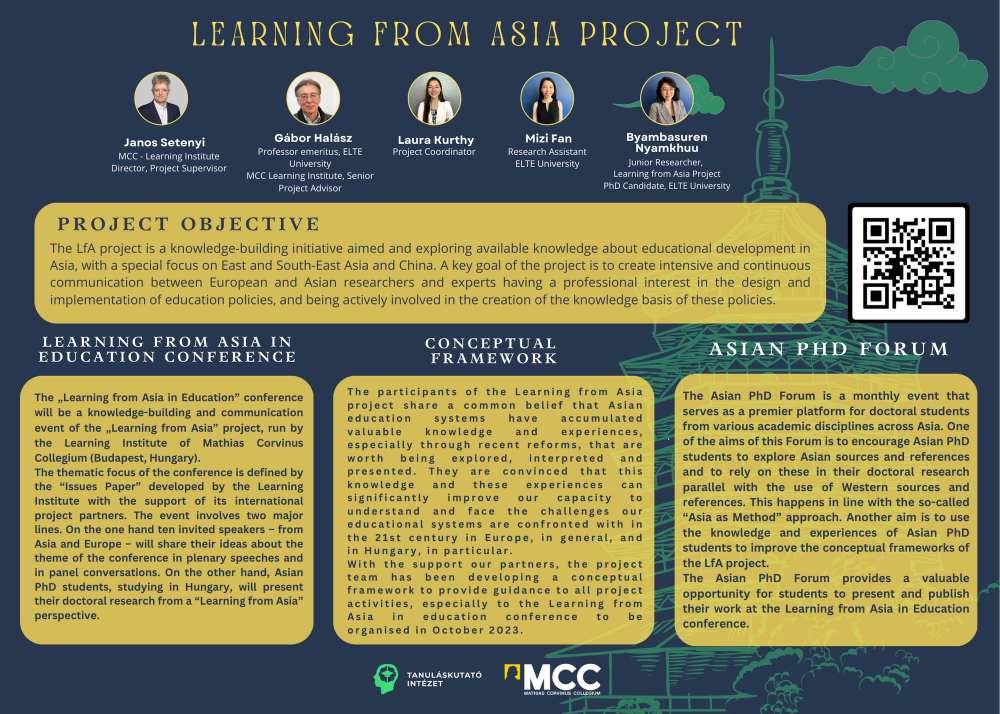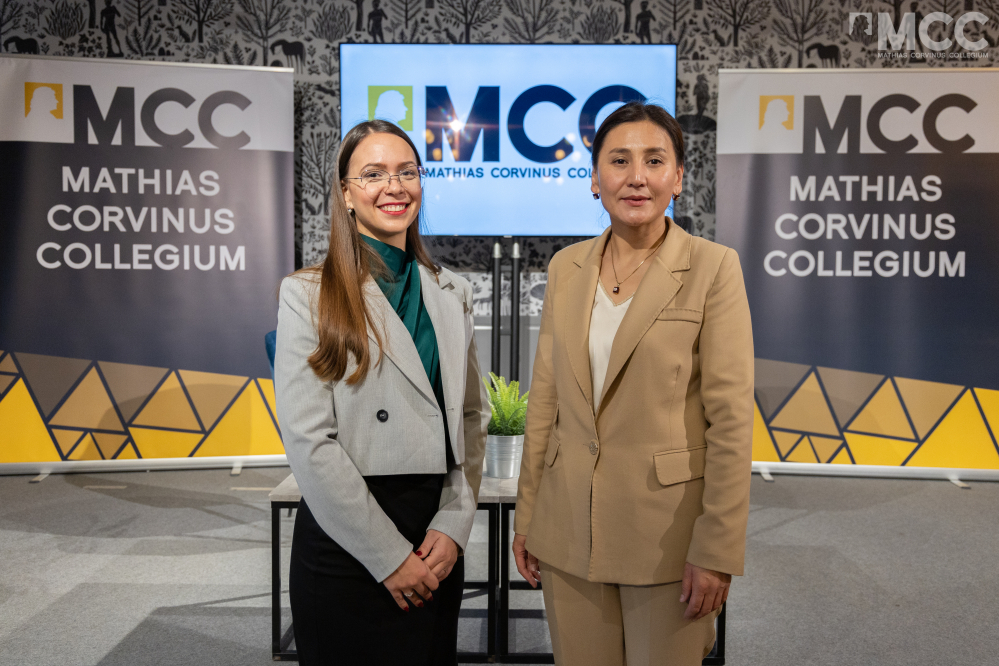"...the success of Asian education systems lies in their integrated, unified teaching philosophy and the sharing of knowledge between teachers."
On January 9, 2023, we successfully held our roundtable discussion "What can we learn from Asia in education?", which was a follow-up to our October 2023 conference "Learning from Asia in Education"[1]. The original conference was one of the highlights of the MCC's Learning from Asia project. Here, participants worked with researchers, mainly from Asia, who shared their experiences and perspectives. The focus of the conference was on improving the content and methodology of education.
The roundtable discussion on 9 January was aimed at giving a wider audience in Hungary the opportunity to learn about what the speakers at the October conference in English had to say. Participants discussed the secrets of success of Asian education systems and the lessons that can be learnt for Hungary and other education systems.
The starting point for this round table discussion was the Asian dominance in the PISA assessments, which has been growing since the 2000s. Participants explored key elements of the Asian education model and discussed whether and, if so, how these could be transferred to other cultures. The teaching methods used in Asian countries, the problems of shadow teaching, teacher appreciation, the role of intensive knowledge sharing and peer learning among teachers, and digitalisation were discussed.
In the second part of the roundtable, participants discussed how Asian education systems compete globally and adapt to the changing socio-economic environment. The societies behind these advanced education systems are making significant progress and their analysis can provide important lessons for other countries. János Győri, Professor at ELTE, mentioned that mental health and values should not be forgotten and that although a high work ethic is one of the explanatory factors for success in South-East Asian countries, every student and teacher is different.
During the discussion, János Setényi, Director of the Learning Research Institute, and Gábor Halász, Senior Researcher of the Learning from Asia project, put forward two narratives about education in Asia: one emphasised the appreciation of teachers and the intensive knowledge sharing and peer learning. The other side, meanwhile, highlights the "price" paid by children and teachers for effectiveness. Professor Gábor Halász underlined that when analysing education systems and outcomes in different countries, it is important to take into account local cultural, social and economic circumstances.
Zoltán Gloviczki, the Rector of Apor Vilmos College, stressed that education should be inspiring and effective, and its success can be measured by results. Therefore, analysing different educational processes and systems can offer important learning opportunities for different countries. Observing the changes in each country and applying the lessons learned can also serve as examples for the development of education systems in their own countries.
Participants in the discussion identified the development of creativity, experimentation and problem-solving skills as key, and the need for education systems to create the right environment for this, and for teachers and leaders to be supported in creating inspiring and innovative learning environments. The experience of East Asian countries also confirms that education systems must prepare students with the skills to understand and solve complex global problems. These include adaptive teaching methods, collaborative learning and digital learning tools. Adaptation means not only copying, but also adapting and embedding in a specific environment.
The discussion highlighted that different cultures may value performance and quality differently. Tibor Baráth, Associate Professor, Organisational and Management Development Consultant, spoke about the social movements that go hand in hand with changes in education, noting that the interaction between education and society is intertwined and includes identity issues.
In the final part of the discussion, the participants debated the application of East Asian innovations in Hungary, which was joined by the audience, resulting in a lively discussion on the topic. One of the main themes was that East Asia has different approaches to memory, effort and creativity. The question was raised as to what role the Chinese writing system might play in this. Dr Márta Fülöp, a clinical psychologist, was in the audience and confirmed this suggestion, pointing out that brain research also shows differences at a functional level, especially in holistic and analytical thinking. The Chinese writing system, especially character learning, is a long and complex process that can socialise children to continuous learning and independent work. The differences in writing systems - hieroglyphic writing in China and the use of Latin letters in Europe - create different mental structures in the brain in the process of learning. As a result, thinking, and as a result communication, may be different in Asia and in the rest of the world.
At the end of the event, participants briefly summarised their experiences and reflections. It was agreed that the success of Asian education systems lies partly in their integrated, coherent educational philosophy and the sharing of knowledge between teachers. However, it was also stressed that each country has its own unique circumstances and that simply copying Asian models is not appropriate. Finding a balance between maintaining high performance and student well-being is a major challenge and a conscious effort to preserve the value of both is key.
The panellists encouraged the audience to approach the challenges of education with open eyes and minds, and to use the Asian model of education not as a model to copy, but as an inspiration for reflection and for the development of education in our own country. At the same time, certain teaching and learning methods can be adapted and learned from other cultures, and learning between East and West can be a two-way process.
[1] See the conference website in English here: https://learningfromasiaproject.wordpress.com







